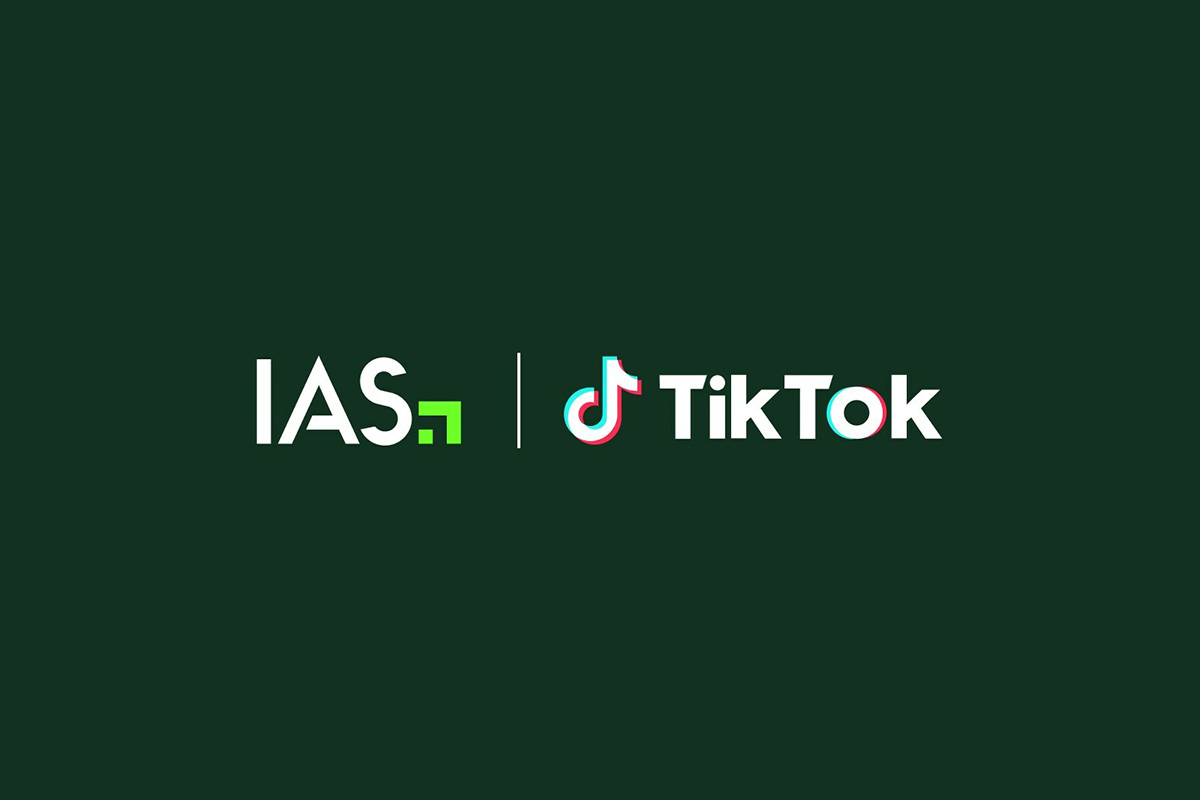IAS Enhances TikTok Brand Safety with New Category Exclusions and Vertical Sensitivity Segments

Integral Ad Science, a leading global media measurement and optimisation platform, announced it is expanding its unparalleled brand safety and suitability measurement reporting on TikTok to include new Category Exclusion and Vertical Sensitivity Segments, enabling advertisers to avoid a wider range of content unsuitable to their brand. This expansion further enhances and simplifies how advertisers measure and safeguard their campaigns on TikTok through IAS’s industry-leading, AI-driven Total Media Quality (TMQ) product and ensures they can confidently scale their brand on one of the world’s largest and fastest-growing short-form video entertainment platforms.
IAS is also expanding its industry-leading Brand Safety and Suitability Measurement on TikTok to an additional 11 countries, bringing the total to 62 countries, across 34 languages. IAS’s AI-driven Total Media Quality product for TikTok uses cutting-edge Multimedia Technology combining image, audio, and text signals with frame-by-frame video analysis to accurately classify content in the For You Feed, at scale, aligned to 12 GARM Brand Safety & Suitability categories and four risk levels.
“The rapid adoption of short-form video on social platforms like TikTok created demand for next-generation solutions that can provide protection and performance for advertisers. As the first independent, third-party digital media quality provider offering an end-to-end brand safety solution for TikTok, global advertisers now have access to AI-backed solutions to safeguard and scale their brands across one of the largest and fastest-growing social platforms around the globe,” Lisa Utzschneider, CEO of IAS, said.
The new expanded measurement capabilities further help advertisers on TikTok by adding:
- New Category Exclusion and Vertical Sensitivity segments: IAS now provides independent, third-party assurance that advertisers’ campaigns are appearing next to brand suitable content aligned to the new segments available within TikTok Ads Manager. The categories include pets, beauty, food, fashion/retail, travel, financial services, technology, automotive, gaming, professional services, entertainment, gambling and lotteries, violent video games, combat sports, and youth content.
- Ease of activation: With new Automated Suitability Profiles, the new Category Exclusion and Vertical Sensitivity Segments will automatically be applied within IAS Signal for measurement. IAS Signal is a unified reporting platform that delivers the data and insights advertisers need to easily manage their digital campaigns to provide a seamless interface for advertisers.
- Deeper insights: IAS is aligning its reporting in Custom Report Builder (CRB) to the profiles advertisers create in TikTok Ads Manager, including campaign name, ad group, objective type, and ad buying type. Advertisers can now drill down to the ad creative level for deeper and more strategic actionable data.
- Expanded coverage: IAS now supports 62 countries, expanding its AI-driven Brand Safety and Suitability Measurement for TikTok to 11 additional countries including Bangladesh, Cambodia, Costa Rica, Denmark, Dominican Republic, Finland, Greece, Guatemala, Hungary, Norway and Panama.
“TikTok is continuously building and refining our brand safety and suitability solutions for advertisers, and evolving to stay ahead of emerging needs. We are excited to be partnering with trusted third-party measurement provider Integral Ad Science to complement our own TikTok Inventory Filter, and our new brand suitability controls Category Exclusion and Vertical Sensitivity, so advertisers are confident in the tools that empower them to connect with our community,” Chen-Lin Lee, Global Head of Measurement and Data Partnerships at TikTok, said.
The post IAS Enhances TikTok Brand Safety with New Category Exclusions and Vertical Sensitivity Segments appeared first on European Gaming Industry News.







